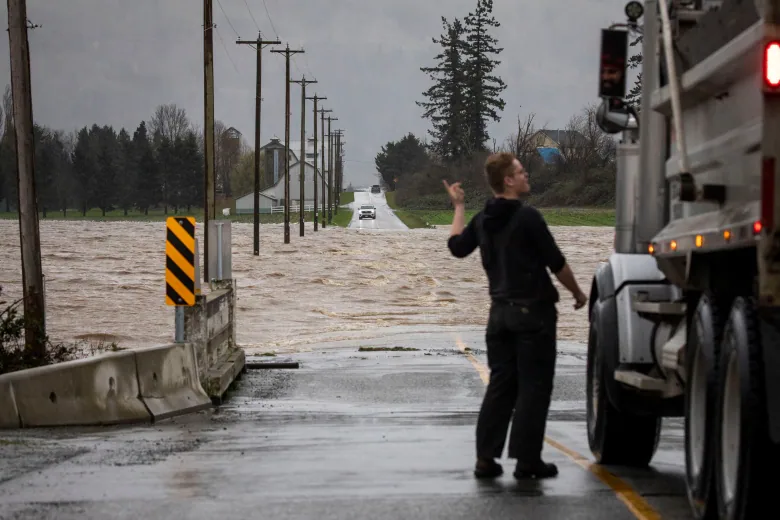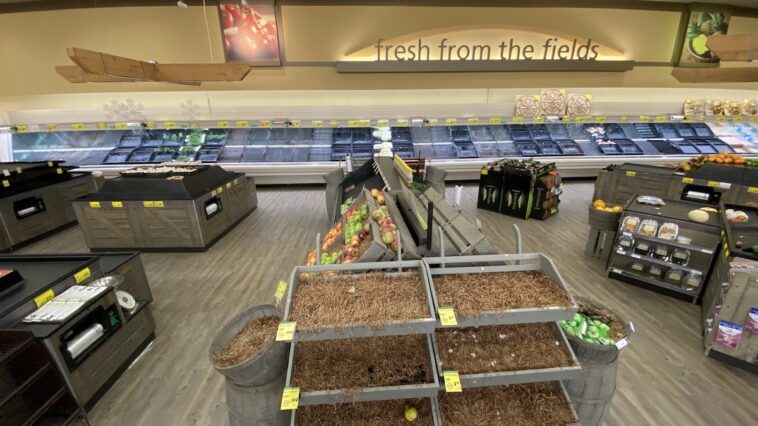Shoppers who went into the Safeway in Smithers this week were greeted by a disturbing sight: rows of nearly empty shelves.
The produce section was nearly cleaned out, as photos taken by Skeena Strong’s Dan Mesec show, with the exception of some beets, turnips, cabbage and celery.







The reason? Intense “biblical” floods in southern B.C. that have washed out roads, leading to delays in grocery shipments. Those temporary shortages appear to be worsened by people “panic-buying” groceries.
Eventually the highways will reopen and the groceries will reappear.
“What’s really important for everybody to realize is the goods will get there. It just may take a little longer, they may cost a little more, but the goods will get there,” Dave Earle, CEO of the BC Truckers Association told CFJC in Kamloops, a city that is also experiencing empty shelves.
But there may be a longer-term lesson in the shortages.

Mesec has interviewed local farmers in the Skeena who say the region is too dependent on imported food.
“We are at the end of the line, so to speak, everything we need gets trucked in,” Mesec writes. “Food deliveries especially arrive on a constant basis and are beholden to Highway 16 being open and safe.”
We have the talent and resources to change that situation. There are at least eight professional egg producers in the Bulkley Valley alone. Local meat is also plentiful. There are great small farms growing produce like Tea Creek Farms in Kitwanga but those need to be scaled up.
What also needs to happen is a shift in perspective about food.
“Because we are so conditioned to the convenience of these global food supply chains – think avocados, bananas, hot peppers, oranges, mandarins – we’ve become accustomed to their easy access without considering how far these items travel to our plates,” Mesec writes.
“One of the first steps we need to take as communities to insulate our local food systems is to help each other better understand where our food actually comes from and to adjust our behaviours,” he writes.





Once upon a time Dairyland had a milk processing plant in Smithers. Telkwa had the Creamery and more recently Northern White dairy processing plant. Local dairy farmers have had to dump thousands of litres of milk because the trucks could not come up to haul raw milk down south for processing. We need our own milk processing facilities here.